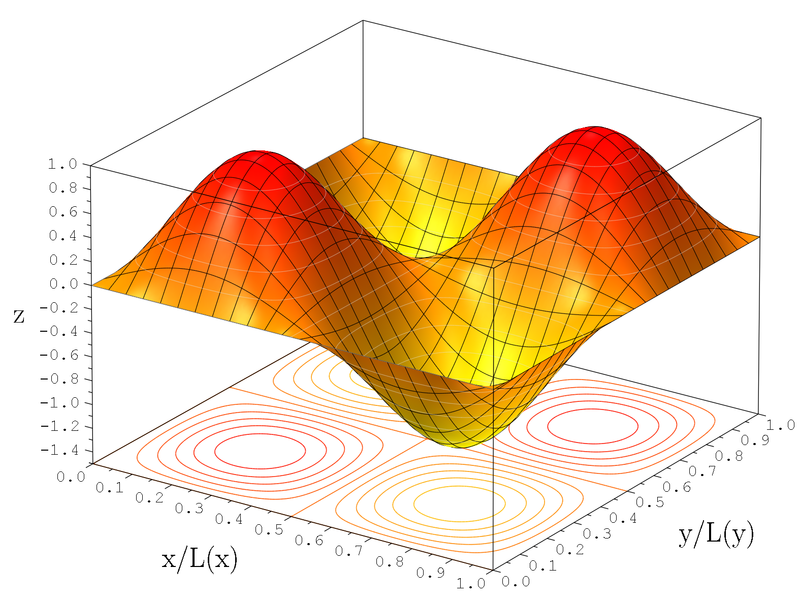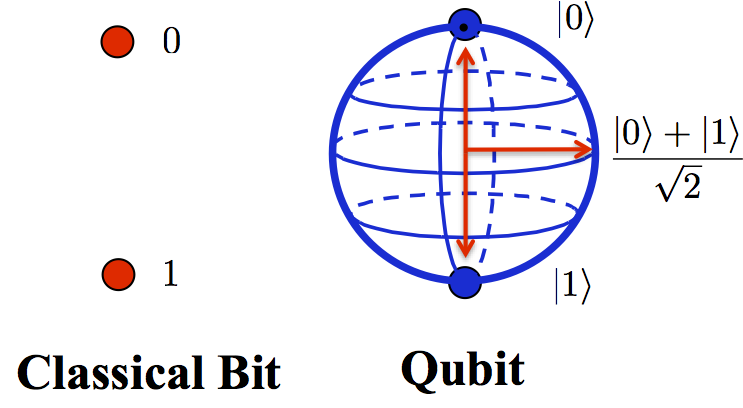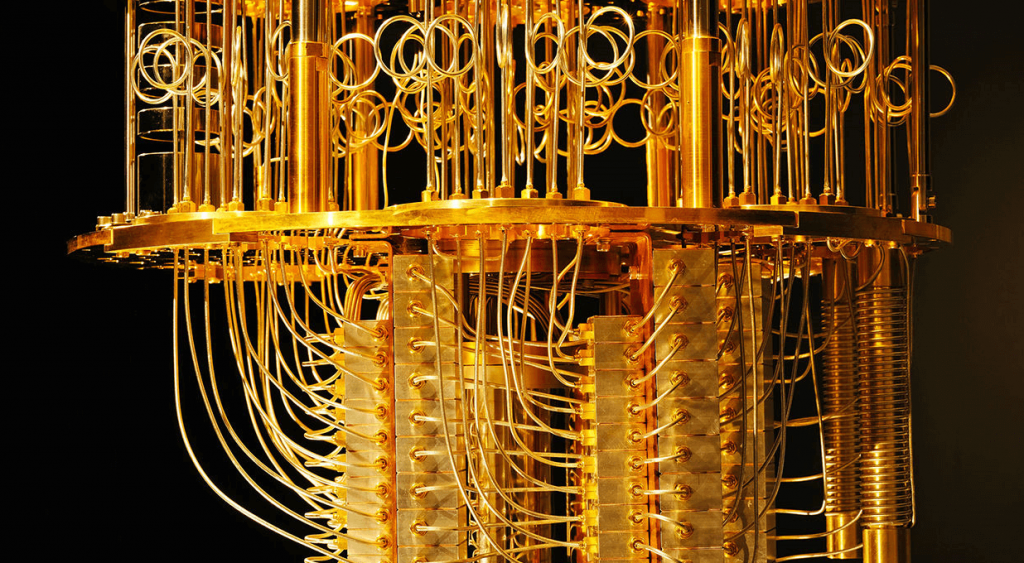To talk about Quantum Processing, we first need to understand the theoretical concept from which it originates: Quantum Mechanics, which offers us new ways of processing and transmitting information and data.
Quantum mechanics is the branch of physics that studies nature on very small spatial scales. Atomic and subatomic systems, their interactions with electromagnetic radiation, in terms of observable quantities, are based on the observation that all forms of energy are released in discrete units or packets called quanta. Surprisingly, quantum theory typically only allows probabilistic or statistical calculations of the observed characteristics of elementary particles, understood in terms of wave functions.

Illustration: 3D diagram of a single-electron wave function
Quantum processing is a computing paradigm different from classical computing or informatics. It is based on the use of qubits, a special combination of ones and zeros. In classical computing, bits can be either 1 or 0, but only one state at a time, while qubits can have both states simultaneously. This leads to new logical gates that make new algorithms possible.
The same task can have different complexity in classical computing and quantum computing, which has generated great anticipation, as some previously intractable problems become tractable.

Illustration: Representation of a Classical Bit vs. Qubit
The approach of quantum computing is to solve problems in a fundamentally new way. Researchers hope that with this new approach to computing, they can begin to explore some problems that we can never solve otherwise. The reason they are building these kinds of computers is that it is believed that someday they will do many really important things, such as helping us better understand nature, perhaps helping create new medicine to aid people.
Dr. Talia Gershon (Director of Research Strategy and Growth Initiatives at IBM) describes quantum computing in a very general way as a combination of three factors: spin superposition, entanglement of two objects, and interference, which helps control quantum states and amplify the types of signals that lead to the correct answer while canceling out the types of signals that lead to the wrong answer.
Superposition and entanglement, quantum phenomena with no classical analogue, offer much more efficient methods for storing, processing, and transmitting information than any classical bit protocol.
Such methods have their challenges and must prevent quantum information from leaking into the environment, a process known as decoherence, noise that degrades the quantum properties of any system. Several techniques developed in recent years have achieved promising advances in this direction.
IBM has introduced its first commercial quantum computer: the IBM Q System One. They have combined quantum computing with traditional computing in a 20-qubit system for research and large-scale calculations.
IBM Q System One is a platform that includes:
Advanced Hardware.
Integrated Systems.
Cloud Services.

In the development of these research efforts, companies like Google, Rigetti, IonQ, and Microsoft have also been involved. Institutions such as NASA and the Max Planck-Harvard Research Center for Quantum Optics have made advances in the field.
· Computer security systems and national defense.
· Encryption, cryptography, and key "breaking."
· Quantum sensors.
· Implementation of quantum algorithms for machine learning.
· Quantum bots and virtual assistants.
· Optimization of processes in healthcare, for instance, finding optimal treatment methods.
And research into future applications is focusing on:
· Studying complex molecular structures.
· Implementing complex physical and chemical simulation systems.
· Developing new materials and pharmaceuticals.
· Quantum networking (satellites and fiber optics) using qubits.
· Efficient allocation of energy resources.
· Creating creative robots using artificial intelligence and quantum computing.
The promise of quantum computing and its derived technologies is already starting to show results, and the possibilities of quantum computers seem endless, completely changing how we store, transmit, and process information. It's a whole new world that is already here, with significant challenges to overcome, but that's a story for another time.

Let It work for you!